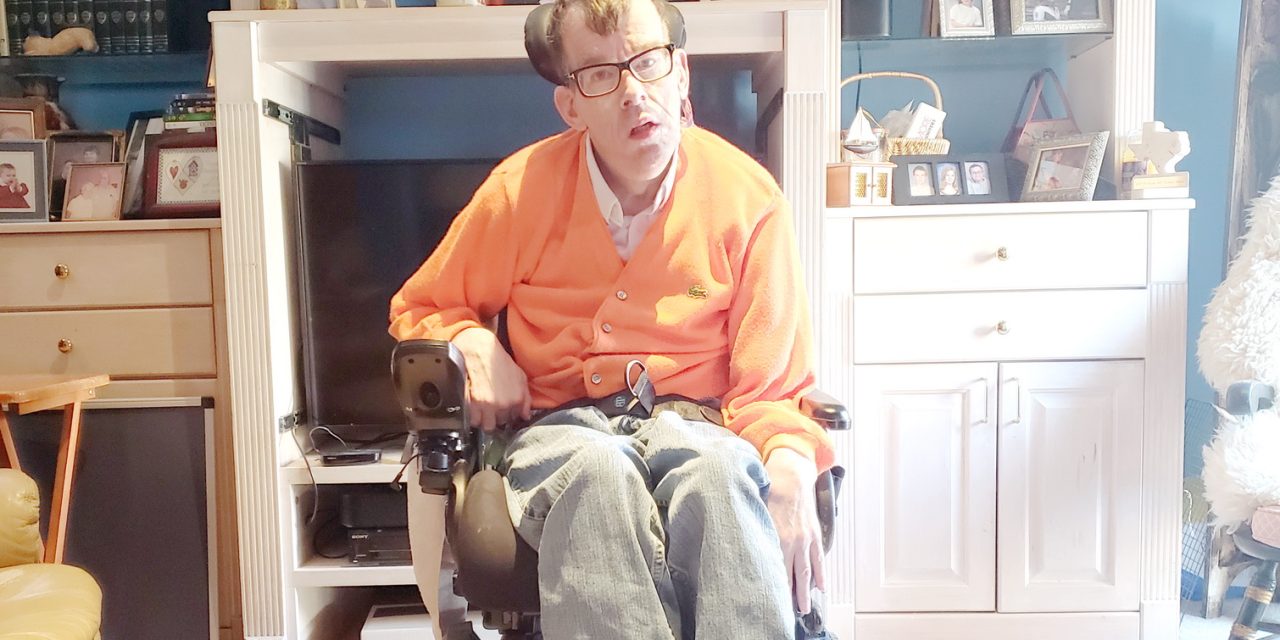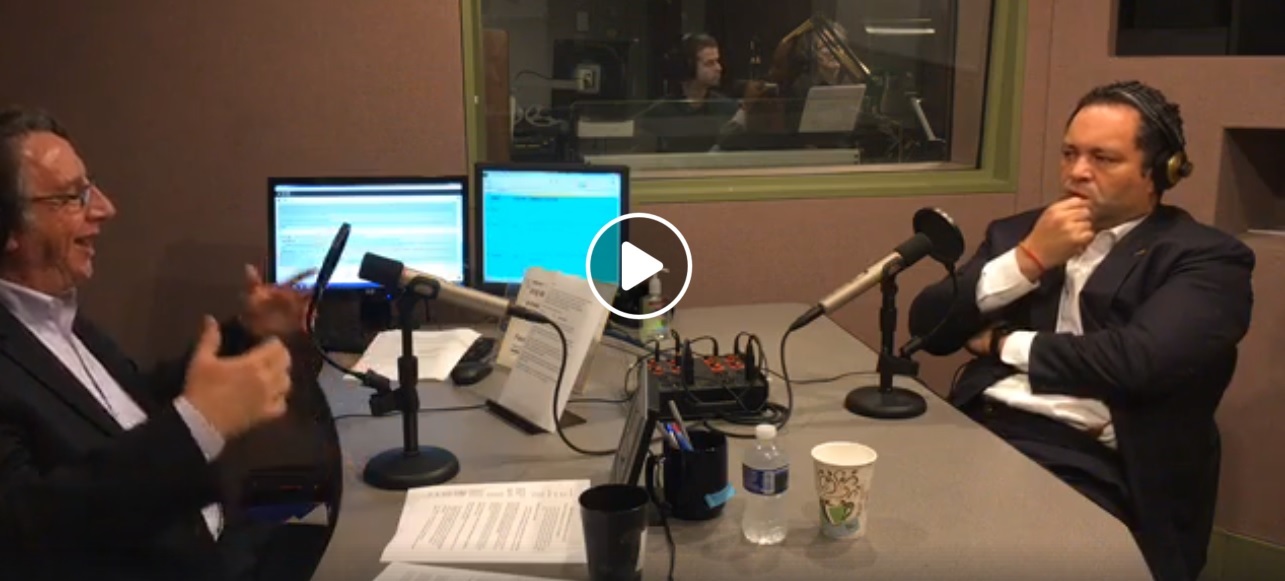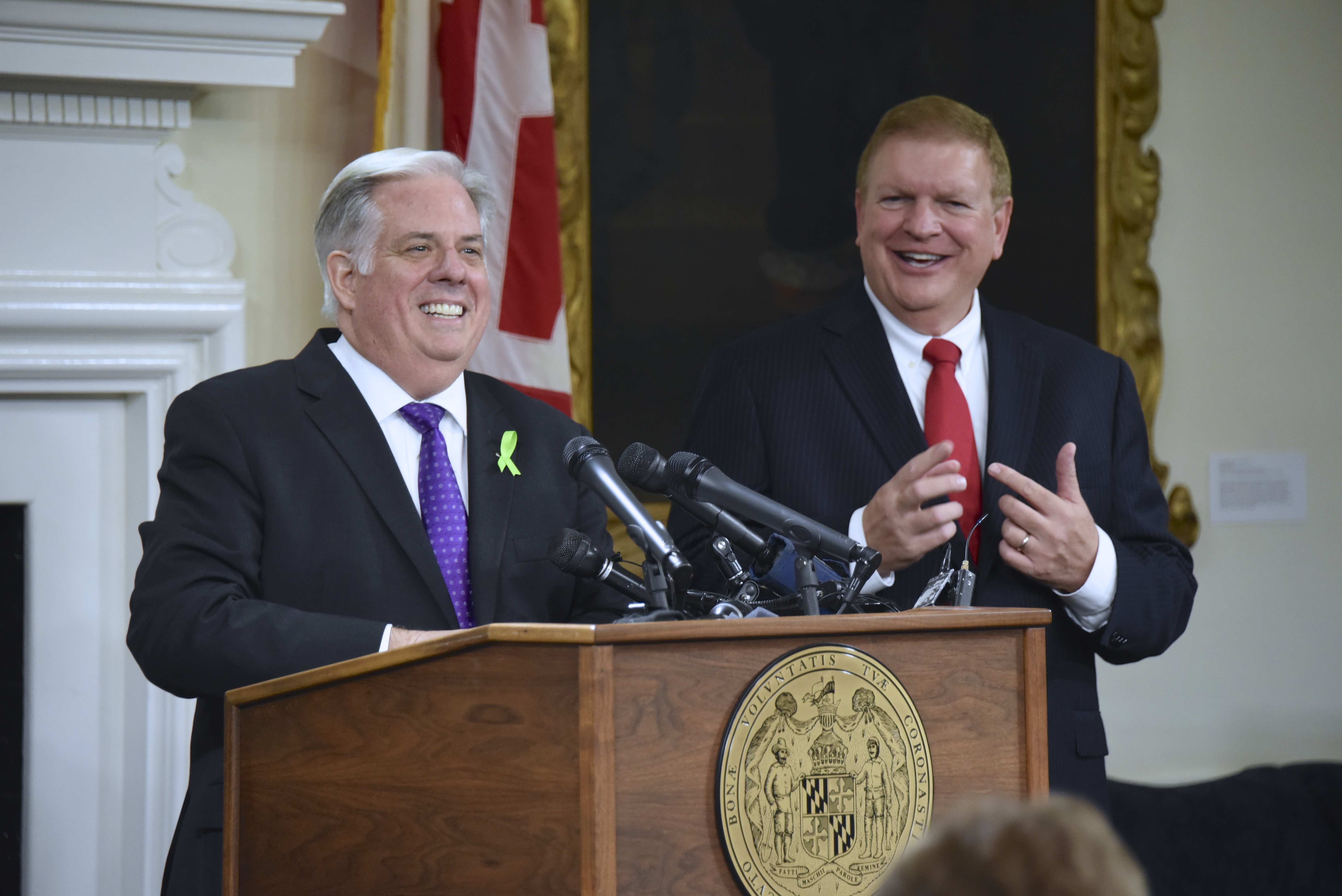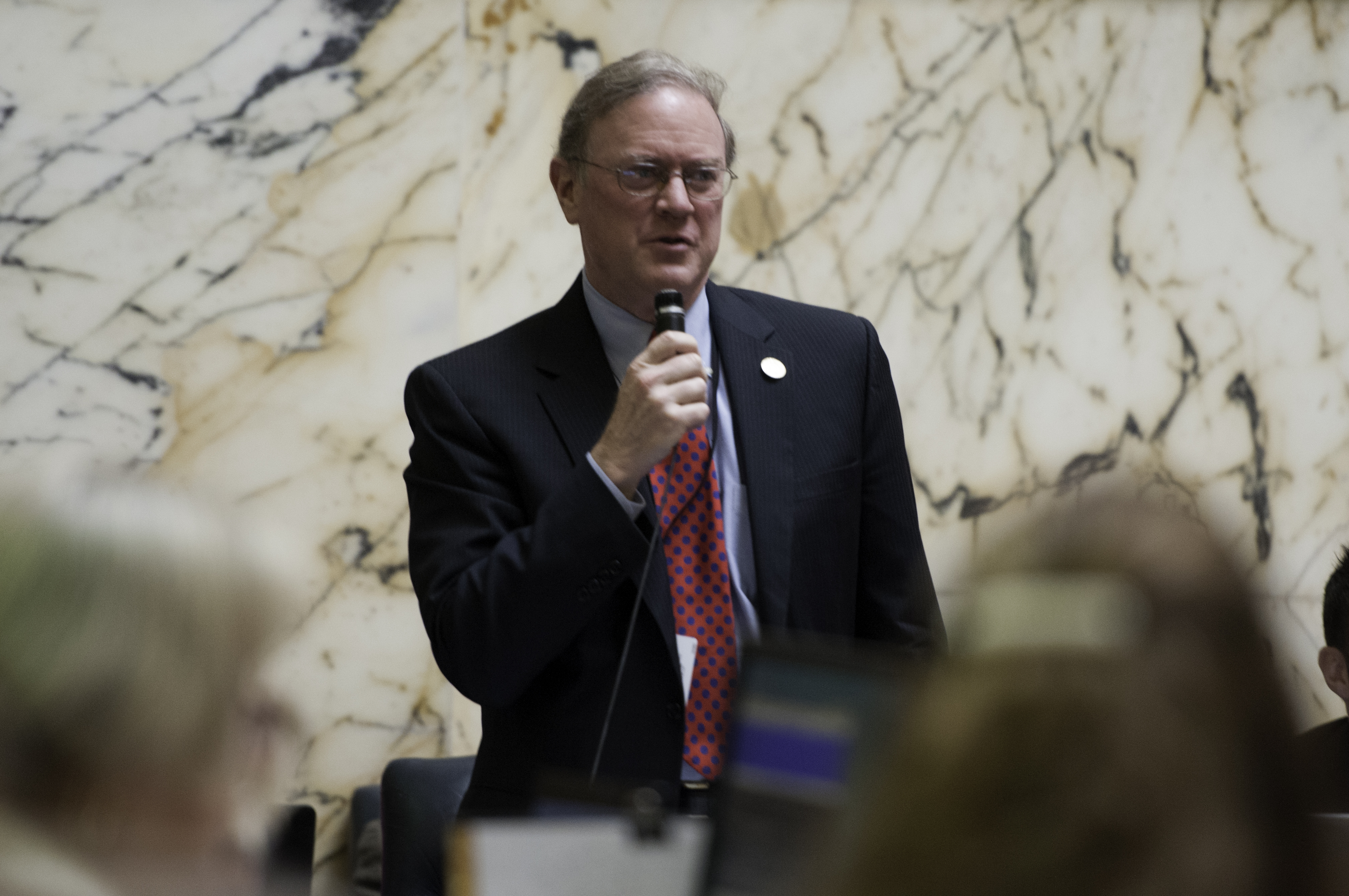Editor’s note: This unsolicited personal opinion piece uses strong language and makes harsh accusations that supporters of “Death with Dignity” legislation will find inaccurate and offensive, particularly the writer’s use of the term “physician assisted suicide.” Opposing points of view are welcome either as comments at the bottom of the article or as separate submissions to Len@MarylandReporter.com.
My name is Edward H. Willard Jr., a 56-year-old active man with significant cerebral palsy.
I introduce myself this way because along with pride of being named after my Dad, the pride also is for having a fantastic life, where I have always told my CP that it is coming along with me regardless if it wants to or not.
As the youngest of four kids in our family, obviously my mother knew what a healthy pregnancy felt like. In the two weeks before I was born Mom just knew something was wrong with how I was positioned.
She went to the GYN that delivered my brother two years earlier, going to the doctor at least once with my godmother because Dad just got transferred and could not be there. But Mom’s concerns got ignored. She went into labor and my left arm came out and the doctor saw the cord wrapped around my neck three times. But instead of doing an emergency C section, the doctor yanked me out of Mom.
Mom nearly died from hemorrhaging, and the anesthesiologist brought me back to life. Without approval from the main doctor in the delivery room, the first question asked to Dad arriving at the hospital was “would you like us to give your son last rites?” This was because they thought I would be dead by morning. They would not even give me nourishment.
After being sedated for three days, Mom heard about a comatose baby on the PA. She screamed, “if that is my baby” and it was. She wanted her pediatrician to immediately take over, since the GYN was satisfied for nature to take its course and let me die.
With the doctor and hospital screwing up so badly, when I was a young adult all parties responsible knew I would probably need costly and intense support and equipment. They agreed to cover most of the expense. Based on the prediction that I would not live past 40 due to my significant cerebral palsy, some of that support ended when I turned 40.
Obviously, I lived past three days, writing this commentary weeks before turning 56. Also obviously, the prediction of my dying by 40 was completely bogus. Fast forward to the summer of 2017. After a few years of not taking care of myself, putting my career and the trappings of a senior management job for the state of Maryland above everything else, and ignoring everybody saying I was in trouble medically, on June 4, 2017, I ended up in an ICU on a respirator and nearly died from pneumonia. During the six weeks in ICU, I had to be intubated three times, the last coming literally moments before I could have died. Fortunately, Mom came for her evening visit earlier than usual to find me passed out and shaking like she had never seen me do. In seconds, the nurse called a code blue, and people came running.
Prior to conducting the code, the lead doctor said to both Mom and my brother, “We need to put a trach in him, or we can let him die.” I was incapacitated, but I heard this guttural yell from Mom “OF COURSE WE DON’T WANT HIM TO DIE.” Followed by “it’s not my right to end my brother’s life” as the doctor glanced at my brother thinking Rob might say “Let him die.”
Sharing these extremely potent experiences in my life shows how several times because of my significant disability, doctors with little to no regard for me as a human were perfectly satisfied with my life ending at an early age. I grant you, that with or without a disability, as with people in general, my will to live is high. Yeah, my family and friends have always brought this stubborn streak in me to my attention. However, it cannot be underestimated how the lives of thousands of citizens with disabilities are devalued. Their lives are currently at high danger of being ended not by their own choice.
Attempts to legalize
For several legislative sessions in Maryland, there have been attempts to legalize Physician Assisted Suicide in our state.
I will not sugar coat the dangers by not calling it for what it is — that is passing a law that would make euthanizing people with disabilities legal. Compassion and Choices, the national organization born from the Hemlock Society, is leading the national effort to make euthanasia for all citizens legal.
One of the reasons C&C has for making physicians be able to kill people is the argument that individuals with chronic pain have the right to end their lives. Cerebral palsy is progressive. Thus, as we age — especially between our late 30s and mid-40s — pain will increase, sometimes rapidly. That being said, folks with CP and our families from teenage years on are told our aging process probably will be hard and, yes, painful. Responsible doctors, physical therapists and other professionals have these conversations mainly to prepare us for what often happens, though not always.
Thankfully, about 20 years ago the medical profession thought that they should warn patients about this reality, but that they also had an obligation to do something about what their patients probably will face. Therefore, in the last two decades, therapies have been developed, including custom seating systems molded to individuals in order to support their bodies, and medication to reduce our tight and spastic muscles.
For a high percentage of us, our chronic pain can be controlled. From my own experience and speaking with numerous other people with CP, passing legislation to allow euthanasia can be used to control our pain. This is malpractice and personally frightening as hell. Because of working for the state of Maryland until 2017, I could not publicly take a position on legislation, but three years ago I began working on opposing legalized euthanasia for people with disabilities.
At this point I started asking myself these types of questions. If I tell people I am in pain, will this lead to conversations about putting me down? If getting out of pain means laying me down once or twice a day, will this become a measurement of work by others? Would medical professionals’ question if my pain is too much for others to handle?
The type of cerebral palsy I have does get progressive and more painful. Would doctors suggest euthanizing me as an option? Would Medicare deem me too expensive to pay for ongoing treatment, yet for a one-time cost will they pay for my euthanasia? Besides having a higher risk of more hospitalizations, besides needing specialized therapy and costly equipment, and besides having a G-tube for primary nutrition, my formula by itself costs $2,000 a month.
For these reasons, I often times get frightened for my life being ended against my choice.
For an executive director of the proponents’ organization to greet me with the normal social greetings, then minutes later be in the hearing room stating “we understand and appreciate how people with disabilities are concerned, BUT.…”
I have never said the following to anybody who has different views than mine: “No, you do not understand how citizens with disabilities are frightened for our lives.” The organization which support this would never admit that a reason for their $18 million budget is that they have backing from the health insurance community.
There are physicians who remember their oath of doing no harm and would not euthanize people with or without disabilities. There are other physicians who seem comfortable aiding people to kill themselves or kill vulnerable family members. I have a hard time being in the same room with them.
I will call them out even if my words tarnish my 30 years of being an advocate for citizens with disabilities.
If Physicians Assisted Suicide becomes an acceptable norm in Maryland, hundreds of individuals with disabilities, a high percentage of them who cannot communicate with words, will be euthanized by decisions of others, not their own.
Obviously, people know the finality of a loved one’s death. With the unexpected loss of my loving brother last spring, the finality of that brought a level of sadness I never knew existed. Advocates of assisting others to die rarely talk of that.







“Prior to conducting the code, the lead doctor said to both Mom and my brother, “We need to put a trach in him, or we can let him die.” I was incapacitated, but I heard this guttural yell from Mom “OF COURSE WE DON’T WANT HIM TO DIE.” Followed by “it’s not my right to end my brother’s life” as the doctor glanced at my brother thinking Rob might say ‘Let him die.'”
Mr. Willard acknowledges that he was “incapacitated” during the above exchange. Even if he were not, he simply cannot read the mind of another human being. No one but the doctor knows what he was thinking at that moment, but it seems extremely unlikely to me that the physician was hoping to allow a patient to die.
The ethical question here is: Does a person have the right to end their own life? Mr. Willard’s position is that no one should have that right because allowing physicians to assist a terminally ill person to end their own life will lead to widespread murder of the disabled. After all, intentionally killing a person is murder, not “euthanasia.”
I’m not suggesting Mr. Willard’s fears aren’t real, not more than I would suggest the suffering of terminally ill cancer patient isn’t real. The question for me is should his fears be the basis for denying that terminally ill patient a dignified death?
I would like to address only the misinformation/disinformation in this piece regarding Medical Aid in Dying (MAiD). Mr. Willis is entitled to not support this option, but I take issue with the inaccuracies. I don’t doubt that Mr. Willis has been challenged working within the healthcare system of the United States. Those professionals working in end-of-life care recognize disparities and lack of resources. However, denying the freedom of all people to decide what is right for them at the end of their life is not the solution. Every single person on this planet should make an end-of-life plan and share their wishes. Because every person deserves access to ALL end-of-life options so they can do what is right for them and aligns with their values and beliefs.
I’d like to make a clear distinction between organized disability group opposition and the actual opinions of folks in the disability community. I hear from people who get bullied by their own community because they support this option. Is that fair and reasonable? What about the terminally ill? Do they deserve to be punished and denied this option if it’s what they want? For some people, a planned death on their own terms, in their own time surrounded by loved ones is incredibly important. That’s why this option is voluntary.
We have over 40 yrs of data showing that the laws work as intended and there is no abuse or coercion. To qualify, a patient must be a mentally capable, terminally ill (<6 months life expectancy(same as hospice) adult. ONLY the patient can request to be evaluated for assisted dying (it is NOT an advanced directive). What this means is that the voluntary request for assisted dying is 100% patient-directed. For example, my husband cannot request assisted dying for me if I have terminal cancer and I cannot document a wish to use assisted dying in the future if I were to develop Alzheimer's for example (patient must have the legal capacity to make healthcare decisions at the time they are going through the eligibility process.)
Medical Aid in Dying is compatible with hospice and palliative care. It's not one instead of another, it can be all of them together. As a matter of fact, in states with existing laws, it can improve end-of-life care because physicians are required to discuss ALL options available when a patient makes a request and that leads to earlier intervention in pain and symptom management with enrollment in hospice and palliative care.
Let's create a safe space for those in the disability community who support Medical Aid in Dying. Let's show respect for actual suicide prevention efforts and stop trying to make the dying feel bad and use the value-neutral/respectful language of Medical Aid in Dying. Lastly, let's honor the wishes of terminally ill people who want this option and listen to their voices.
Correction: Mr. Willard
I loved that he shared his experience so openly. It is so important to listen to the voices of those who would be effected by this deadly legislation.
As the organization Not Dead Yet has complied ALL national self advocate disability organizations who have made a stance on physician assisted suicide have adamantly fought against it.
We need to listen to their voices.
The editor’s comment at the top of this piece is totally inappropriate. The editor has the means of writing an editorial to portray editor’s views. The author of this piece is giving his perspective as a person who would be affected by this type of legislation. His words are important as they explain his perspective. The editor discrediting his view is distasteful at best and repugnant in reality.
I completely agree! Before you even read the piece the editor is completely discrediting his opinion. It certainly doesn’t come off as impartial.
Really disappointed in that choice.
Disability self advocates deserve to be listened to!